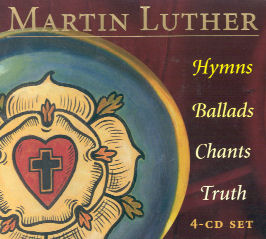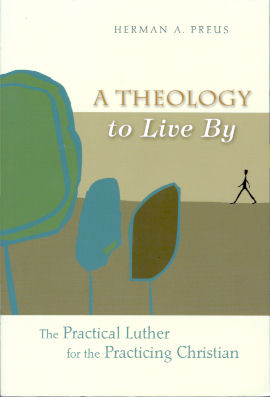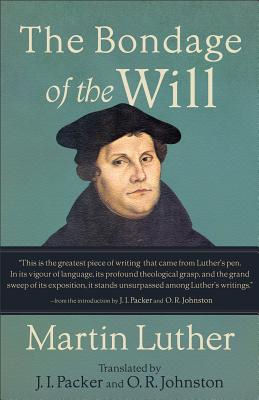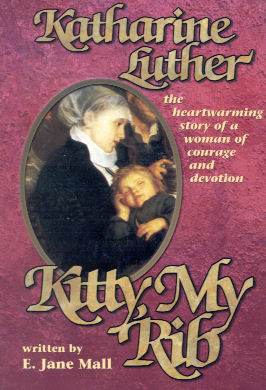To view a list of the resources available to be reviewed, click here.
July 5, 2017
Martin Luther: Hymns, Ballads, Chants, Truth - CD Set
Review by Marian Christopherson

This monumental project presents a complete recording of all hymns, ballads, and chants written or composed by Martin Luther. The 4-CD set furnishes vocal and instrumental settings using Renaissance, Baroque, and modern instruments and supplies English texts and historic narrative quoting Luther.
Martin Luther saw music as an outstanding gift from God and placed it next in importance to the Word of God. He believed that all the arts, especially music, should be used in the service of Him who has given and created them. Luther saw the ultimate goal of music as proclamation of the Gospel and the praise of God.
As noted by the editors of this project, “The way to proclaim that Gospel is to proclaim Christ and His work. The hymns of Luther are not about him or his work, nor are they really about us and what we can do. Luther’s hymns are about Christ and His saving work on our behalf.
“One of the greatest chapters in the story of the Reformation of the church is the one focused on Martin Luther and his hymns. Luther was a gifted musician with a talent for singing, playing the flute and lute, and composing. . . . The time leading up to Luther’s first hymn in 1523 was spent in translating the entire New Testament and a good portion of the Old Testament. . . . His work in translation and in worship reform became the seedbed for the flourishing of his hymn writing.”
Concordia Publishing House (2004) has done a great service for the Christian church in providing this 39-track CD set with hymns for Advent, Christmas, Lent, and Easter and paraphrases of several Psalms, the Nicene Creed, and chief parts of the Catechism, including the Ten Commandments and Lord’s Prayer. The accompanying 64-page booklet has lyrics and brief comments concerning the history of each music setting.
This CD set is a thorough introduction to Luther’s music. Theologians, musicians, and lay people should consider it a worthy personal investment and are also encouraged to make provision for it in the church library.
Marian Christopherson
AFLC Parish Education Director
Plymouth, MN
NOTE: The 64-page booklet is free to download, and clips of music samples are also available to listen to at: https://www.cph.org/p-6291-martin-luther-hymns-ballads-chants-truth-cd.aspx
Order your copy here: Ambassador Publications Online Store
Also Available:
July 12, 2017
A Theology to Live By: The Practical Luther for the Practicing Christian
Review by Andrew Kneeland

By opening this review with the words “systematic theology,” I run the risk of losing half my audience. But while a topic-by-topic overview of theology sounds like dry academia, Martin Luther had much more than stuffy classrooms in mind when he nailed his theses to the church door.
In A Theology to Live By, Herman Preus demonstrates the practical applications of Luther’s theological insights. “Not for a moment does Luther pursue theology for the sake of theology alone.” Martin Luther’s objective stretched beyond the classroom and beyond the pulpit. The theology of Luther and the Reformation was a workable and livable system for everyday Christians.
The book is neatly divided into three sections. Part One deals with Luther’s foundational “Theology of the Cross,” which teaches that God is found where He has revealed Himself, namely in the cross. God is not found in speculation, mysticism, or even intellect. God revealed Himself through the crucified Christ. This understanding is eminently practical and presents a frame in which to view the rest of Luther’s theology.
Part Two answers the question, “What is Man?” and examines the original nature of man and the fallen nature of man. The essential doctrine of man’s inability to save himself is incredibly practical for everyday Christian living, and Preus does a fine job explaining Luther’s position that God not only makes salvation available to all men, but He also delivers it and applies it through His Word. This also establishes the distinctly Lutheran doctrine of “Sinner and Saint,” teaching that believers are completely justified before God while simultaneously retaining their sinful nature.
Finally, Part Three focuses on “The Christian Life,” discussing the cross and Sacraments in a practical manner. It is in this third portion that Preus reaches full stride in his attempt to unify systematic theology and day-to-day living. With the cross of Christ ever in our view, the Christian presses on in his life. “The Christian must carry on the good fight all his life. But this is his consolation, that he is carrying on a winning battle with Christ, who has triumphed over the enemy,” Preus writes. The enemy is strong, but our Christ is stronger.
Luther wrote in the sixteenth century, and Preus originally wrote this piece in the twentieth century, but it holds tremendous value for the Christian living in the twenty-first century. Theology isn’t just for pastors or teachers; a working knowledge of who God is and how He works is appropriate for any and every Christian. A Theology to Live By provides an excellent and readable primer on systematic theology.
Andrew Kneeland
AFLTS Student
Plymouth, MN
Order your copy here: Ambassador Publications Online Store
Also Available:
July 19, 2017
The Bondage of the Will
Review by Steven Moen

In the early 400s Augustine prayed, “God command what you will but grant what you command.” Pelagius took exception to this and proclaimed that man didn’t need God’s help but could do on his own what God commanded. He was condemned at Carthage in 415 A.D.
One thousand years later, the same church that condemned Pelagius now taught the same heresy, and Erasmus wrote a book, The Freedom of the Will, to promote it. This compelled Luther to write a book, The Bondage of the Will, against this because it was a direct assault on God’s sovereignty, and Luther would have none of this. To him the sovereignty of God was not to be messed with, and if free will theology was allowed to stand, God was under direct assault. After all, if God isn’t sovereign of all, He’s not sovereign at all.
Luther proceeded to pick apart Erasmus’ position one piece at a time, and he didn’t use kid gloves in doing so. You can almost hear his words thunder off the pages as he states his positions on man being either under bondage to Satan or freed and under bondage to Christ. There is no room for the freedom of the will of man. It’s either Satan or Christ, and that is by God’s sovereign choice, laid out before time began, commonly referred to as the doctrine of election. Thus Luther said that “the human will is, as it were, a beast between the two. If God sit thereon, it wills and goes where God will: as the Psalm said, ‘I was a beast before thee, nevertheless I am continually with thee’ (Ps. 73:22-23). If Satan sit thereon, it wills and goes as Satan will. Nor is it in the power of its own will to choose, to which rider it will run, nor to which it will seek; but the riders themselves to contend, which shall have or hold it” (Section 25, The Bondage of the Will). Luther clearly proclaimed that God chose His people in His grace and mercy, and the rest received justice. No one can complain.
As strongly as Luther proclaimed these truths, here we are five hundred years later, and I fear they are becoming lost in most churches today as free will seems to be the common theology, and the doctrine of election and God’s sovereignty is being glossed over or completely ignored.
Either man is sovereign or God is, and Luther proclaimed the biblical truth that God is. Lord, give us the grace to do the same.
Steven Moen
Bethel Free Lutheran Church
Minot, ND
Order your copy here: Ambassador Publications Online Store
Also Available:
July 26, 2017
Kitty, My Rib
Review by Linda Mohagen

Kitty, My Rib gives us the “inside story” of the marriage of Dr. and Katharine Luther as well as their family life. Theirs was a marriage that started out “one-sided,” for Katharine, who had always wanted to get married, had a deep love for Luther, but Luther was convinced by a friend to take her as his wife because he needed someone who could cook and keep the parsonage clean! Katharine was 26 years old and Luther 42 when they married. Though at first Katharine didn’t feel the joy and happiness as a new bride should have, she saw herself as the wife of the great Dr. Luther and her role being to bring a little love and comfort to him—a role that truly did make Katharine happy. It was great to read how their love for one another grew over time, but more so, to see their deep devotion, commitment, and admiration, and how well they worked together, side by side, encouraging one another all the time, but especially during the very difficult times. “Kitty, my rib” was the nickname Luther gave Katharine after the birth of their first son.
Katharine was an exceptionally courageous woman, having escaped the convent through her cell window along with 11 others after being punished for heresy. She was wise, intelligent, and a humble woman of prayer, who knew how to comfort and quiet Luther during his turmoil, despondency, and depression. All this time, hating Wittenberg, she wished they could have a cottage in the country—a place where Luther could have rest and relaxation, for Luther continually battled health issues. Katharine truly devoted her whole life to be a positive and loving servant to Luther, her husband, even when he was away for long periods of time.
Katharine and Luther didn’t have much privacy. The huge parsonage was always full of students and visitors, with their table full of food, which kept Katharine extremely busy. Katharine also ministered alongside Luther during plagues, sicknesses, and while feeding the poor and homeless. Luther would continually be giving things away (including money), which made it difficult to keep up with all the expenses. And since Luther never took payments for his writings, their life was hard. Katharine, when given money, would hide it from Luther, along with some of their precious wedding gifts Luther kept giving away. But she used the money wisely, and Luther would tell her she was a good wife.
After Luther’s death, Katharine planned to move to Zulsdorf. But because of lack of money and the church turning their back on her and the family, they had to stay at the parsonage, taking in boarders for income. Katharine felt the responsibility to Luther’s memory to aid the church even though it had abandoned them.
After Katharine’s accidental death, the children grieved but reminded each other of what their mother and father had always told them: “God will take care of you. He is everywhere with you.”
I recommend this fascinating, enlightening, and encouraging book to any reader. This is a most unusual "romance" story within a marriage that endures many harsh trials, yet without losing respect, commitment, honor, and love for one another as husband and wife. This is a book that will benefit both young and old!
Linda Mohagen
Slim Buttes Lutheran Church
Reva, SD
Order your copy here: Ambassador Publications Online Store
Also Available:












